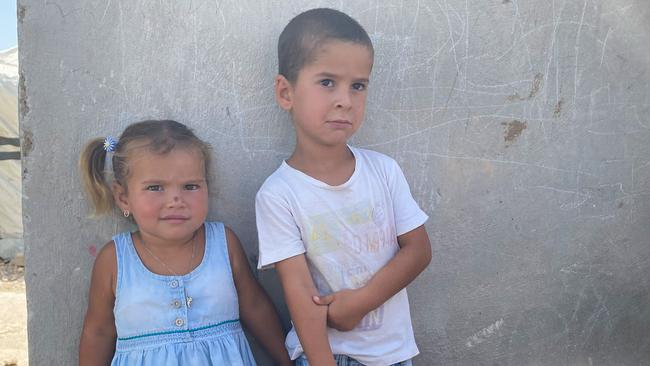Australian law does not require we bring Syria families home

Australian law does not require the Albanese government to bring home our citizens living in squalid conditions in northeast Syria. Rather than safeguarding their rights, our legal system arms our government with extraordinary powers to prevent these people from returning. The only source of an obligation to bring our women and children home lies in international law. However, international rules are not enforceable in Australia and have proved to be of little assistance.
The rights that may be thought to attach to Australian citizenship have limited protection under our legal system and are often non-existent. The Constitution does not mention Australian citizenship and other laws are also silent, thereby making us exceptional. Unlike every other democratic nation, we have not protected the rights of citizens in an instrument like a bill of rights or human rights act.
Australian governments instead have been granted remarkable powers to override basic citizenship rights. As we have seen during the pandemic, the federal government is more than able to prevent citizens from returning home. In the case of the India travel ban imposed last year, the government even threatened citizens with five years’ jail should they return from that country. The courts rejected an attempt to strike this down.
Special, and even more extreme, powers apply when national security is at stake. Citizens aged 14 or older can be prevented from entering Australia for two years under a temporary exclusion order. This can be imposed by a minister on broad grounds including that the person has been assessed by ASIO as “directly or indirectly a risk to security” for reasons related to politically motivated violence.
Australian law also confers the power to revoke citizenship from Australians who are dual nationals. This has been applied to prevent Australians connected to the Syrian conflict from returning.
However, the High Court struck down a key element of this regime last month, thereby limiting the power of the government to take further action. Stripping citizenship now will be an option only where a person has been convicted and imprisoned for at least three years for foreign interference, terrorism and other like offences.
International law provides a different answer. The International Covenant on Civil and Political Rights ratified for Australia by the Coalition Fraser government in 1980 says: “No one shall be arbitrarily deprived of the right to enter his own country.” This is bolstered by the obligation that Australia protect people from torture and cruel, inhuman or degrading treatment.
Ten UN special rapporteurs have found the plight of Australians stuck in Syria is so poor as to meet this threshold. They say repatriation is “the only legal and humane response” to the “sheer obliteration” of the rights of these Australians.
Australia also has legal obligations to children under the Convention on the Rights of the Child. We are required to give children special protection and to act with the overriding objective that “the best interests of the child shall be a primary consideration”.
This means Australia must not condemn children because of the actions of their parents and must take steps more broadly to safeguard the health and safety of Australian children. Our obligations under this convention stand in stark contrast to our treatment of children stranded in Syria.
These duties provide a strong legal case under international law for why Australia must bring it citizens home from Syria. The UN special rapporteur on counter-terrorism and human rights, Fionnuala Ni Aolain, has gone so far as to say Australia is under “an unequivocal international obligation to bring their nationals home, including their children”.
This, though, has not happened. One reason for this is that our citizens cannot access their right to re-entry as they need government assistance. Another difficulty is that obligations under international law are not enforceable in our courts. There may be no effective remedy when our government breaches the rights of Australian citizens under international law.
The failure of governments to return our citizens stranded in such dire conditions in Syria is consistent with Australian law.
This reflects the fact our legal system does little to protect the rights of citizens and instead arms our governments with extraordinary powers to prevent citizens from exercising basic entitlements such as returning home. Governments even may take the extra, extraordinary step of stripping citizenship from some nationals.
On the other hand, Australia’s failure to abide by our international legal commitments to citizens in Syria is becoming increasingly untenable. We compare unfavourably with other nations by standing in clear breach of our international commitments. Australian governments assumed these obligations voluntarily and we must abide by them. We expect this of other countries and also must do ourselves to protect our people as required under the international legal order.
George Williams is a deputy vice-chancellor and professor of law at the University of NSW.


